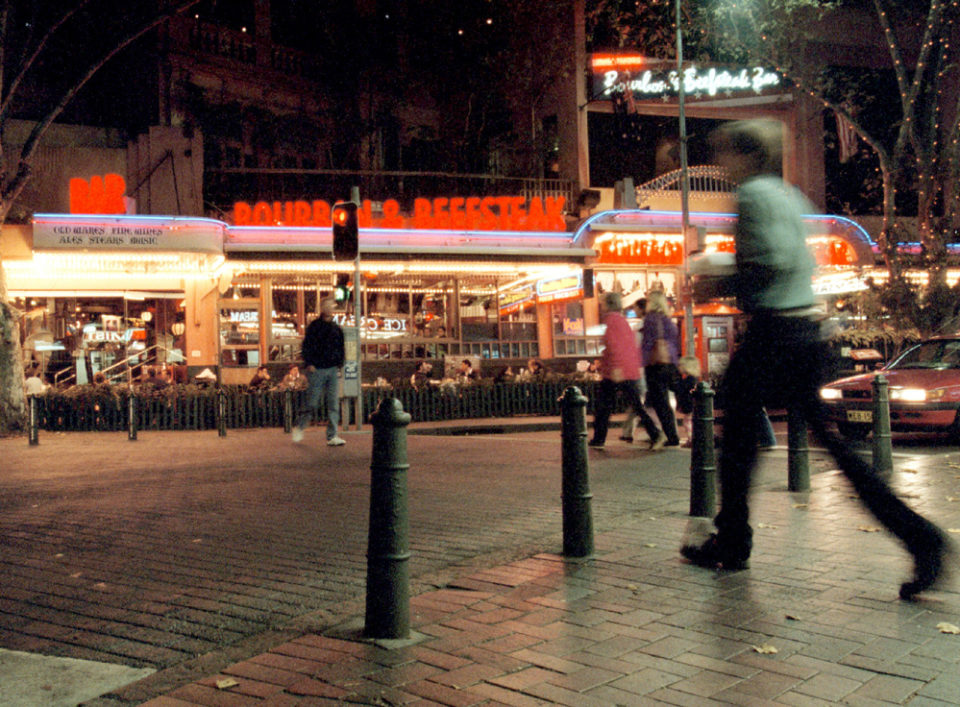The post to a Kings Cross residents group on Facebook began: “I need advice. A very mentally ill/homeless person has set up camp next to my house in the front yard. This is the second time.” It went on to say the person, a woman, screamed and swore loudly throughout the night, saying, among other things, that she had been raped. She also interrogated the darkness as to whether it had ever been hit in the head by a semi-trailer. And sometimes, for long periods, she sobbed.
“Pretty haunting sounds to try and sleep too,” the Facebook post continued.
While all this was distressing for the female resident, she was also compassionate enough to realise the woman on the street was evidently in a very troubled state. The resident wanted to do something. She didn’t feel comfortable about a direct approach. “I don’t want to talk to her coz I’m not really equipped to handle it correctly,” the resident explained.
Her Facebook appeal for advice goes on to describe her unsuccessful efforts to find an agency or support service that was equipped to deal with the situation. On a recent Saturday morning, Neighbourhood caught up with the resident at a Kings Cross café to find out more about this concerned citizen’s tale of frustration and disappointment.
“It was really upsetting stuff,” she said. “I mean, I’d almost rather hear people having a fight or a party than just this one person sobbing in the middle of the night.”
She went first to the Wayside Chapel which gave her the telephone number for a mental health line. She called but they said they couldn’t do anything, at least not immediately. “They have a crisis team that goes from spot to spot and check on people but they had already done that for that day. [They said] they would try and do it another day. I don’t know if that ever happened. I mean they are great, I’ve watched them handing out socks to people and clean underpants…”
Wayside Chapel then suggested calling the police or an ambulance. But the local police said they couldn’t do anything unless there was a public disturbance at the time the resident called them. “I mean, I thought because she was on someone else’s property, they could do it in the daytime in a civilised sort of way. Say ‘look you can’t stay here’. Give her a chance to pack up and move on. I didn’t realise you had to wait until she was screaming. Because kicking someone out of their space at 3am when they’re screaming, what are they going to do… it just didn’t seem conducive to any solution.”
The resident isn’t critical of police. “Not that they were unhelpful,” she says, “just probably used to doing this every day – and almost fatigued by it. Maybe it’s not the police’s department to look after the mentally ill, but that’s what Wayside had said, call the police.”
The woman was camped next door to the resident for about ten days. When some painters arrived at the vacant property she moved on. But when the painters left, she returned. That’s when the resident turned in desperation to Facebook. “That little Facebook group was amazing,” she says. “I got so much good advice; so many phone numbers and practical things like the contact for a women’s refuge.”
Soon after though, the owner of the property where the woman was camped called the police again. He had tenants ready to move in – and because he is the owner it seems he could, unlike our troubled Facebooker, get the police to act on a trespass and move her on.
“She’s at the Wayside now,” the resident says. “It’s nice to see her there sitting with people. She has a dog, she’s getting some refuge during the daytime. I don’t know where she’s staying at night.”
While there’s a patchwork of agencies and organisations to deal with people on our streets, and many do extraordinary work with limited resources, this resident’s experience left her questioning whether some people simply fall between the cracks between each service’s rigidly defined roles and responsibilities. There’s also a lack of available and easily accessible information to guide a concerned citizen about what to do, who to call. She would like to know there are systems to ensure that people such as the woman who camped next door to her can be properly looked after.
“Taken in somewhere, stabilised if necessary, have their medical and other needs assessed. Are they on medication? Given some food.” Without that, she says, just moving them on simply relocates the problem. And for some that might be solution enough. “It’s the sort of thing you’d do if you thought ‘I just want it out of my face.’ There’s some pretty unkind people around.”





